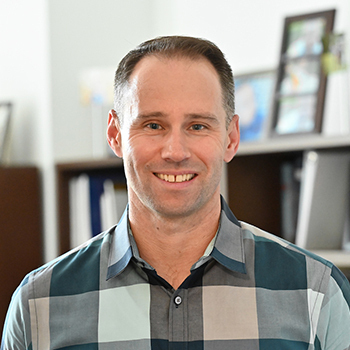There’s no ‘one size fits all’ when it comes to addressing men’s health issues globally

Even with important strides in addressing health issues across the globe, men have not benefited equally compared to women. Men’s life expectancies have not grown as steadily as women’s over the past few decades, and they are expected to live about five years less than women, according to 2021 global health data from the Human Mortality Database and the United Nations’ World Population Prospects. The discrepancy in life expectancy between men and women persists in places all over the world, and is even growing in other places.
At a time when health resources are at a premium and need to be wisely allocated, health professionals must find points within men’s lives when it makes the most sense to intervene and advocate for preventive care for promoting better health outcomes. Life transitions such as marriage and fatherhood are often pivotal and crucial intervention points — and men often experience long-term health benefits from those family roles, with lower mortality risks than single men without children. But just like every man is different, health concerns across global communities differ as well.
Research from the University of Notre Dame finds that not all life transitions produce the same health results, and not all men’s global health policies should look the same from one country to another.

In most contexts in the United States and Europe, men tend to experience physical health changes when they get married and start having a family. These changes include an increase in waist circumference and body mass index — a phenomenon known as the “dad bod,” explained Lee Gettler, associate professor of anthropology and chair of Notre Dame’s Department of Anthropology.
But Gettler’s research found that this phenomenon actually differs across societies. His study, recently published in the journal Social Science and Medicine, used a large longitudinal dataset from the Philippines to explore how men’s physical health changed across transitions to either marriage or cohabitation and fatherhood. His and his co-authors’ findings present a different picture of Filipino men’s health as it relates to these major transitions, compared to what is commonly seen in the U.S. and Europe.
Gettler worked with scientists from the University of Michigan, Northwestern University and the University of San Carlos in Cebu City, Philippines, to conduct and compile the research.
“Our research shows that the links between physical health with marriage and fatherhood are different for Filipino men in Cebu than they are in places like the United States or Europe,” said Gettler, who is also director of Notre Dame’s Hormones, Health and Human Behavior Lab and faculty affiliate with the Eck Institute for Global Health.
Gettler and his fellow researchers collected socio-demographic, health, behavioral and testosterone data from a long-running birth cohort study of Filipino men at ages 21, 26 and 31 (approximately) between 2005 and 2014. The researchers discovered that their group of 607 men fared much better than men in other cultures at the same stages of life.
“We don’t find that the married or cohabitating Filipino men have the same kind of negative health trajectories in terms of their physical well-being compared to the Filipino men who stayed single in our study,” Gettler said. “They are not experiencing deteriorating health, or demonstrating the dad bod, as a consequence of becoming a partner or father.”
The study acknowledged the myriad reasons behind this difference in outcome and said that diet and physical activity, as well as the social dynamics surrounding partnering, could explain such results. In addition, the study revealed that the Cebu men who were stronger and more muscular in their early 20s were more likely to later become partnered in the first place — a pattern the co-authors described as the “marital selection” model.
“Our findings indicate that an emphasis on men’s body composition as they transition to partnering and parenting may be less critical in Cebu and similar contexts,” the researchers wrote, compared to prioritizing other potential men’s health issues at this same stage in life, such as mental health.
“The transition to fatherhood represents a promising developmental period to encourage men to attend to their own health,” continued the co-authors, with the added benefit being overall family health in the long run. But, they cautioned, it is crucial to direct those promotional efforts and resources to the most pressing needs within a specific socio-ecological setting and community.
“In global public health, men’s well-being is often a secondary concern, despite men faring poorly compared to women on multiple dimensions of health across the life course,” Gettler said. “But to help address this gap, we not only need improved strategies and policies, but we also require a more robust understanding of factors that shape mens’ health across diverse contexts.
“This means we cannot simply transport a ‘one size fits all’ policy on men’s health and family life from one context to other settings around the world.”
Contact: Tracy DeStazio, associate director of media relations, 574-631-9958 or tdestazi@nd.edu
Latest Faculty & Staff
- In memoriam: Alasdair MacIntyre, the Rev. John A. O’Brien senior research professor of philosophy emeritusAlasdair MacIntyre, the Rev. John A. O’Brien senior research professor of philosophy emeritus and a permanent senior distinguished research fellow at the de Nicola Center for Ethics and Culture, died on May 21, 2025. He was 96.
- Santiago Schnell, dean of Notre Dame’s College of Science, appointed as provost of DartmouthSantiago Schnell, the William K. Warren Foundation Dean of the College of Science at the University of Notre Dame, has accepted an appointment as provost at Dartmouth College. He will depart Notre Dame at the end of June and begin his new role in July.
- Notre Dame’s Fightin’ Irish Battalion receives Department of Defense award as nation’s top Army ROTC programThe United States Department of Defense honored the University of Notre Dame’s Army ROTC Fightin’ Irish Battalion as the nation’s top Army collegiate program for the 2023-24 academic year. This will be the first time the unit has received the department’s Educational Institution Partnership Excellence Award, which recognizes the program’s achievements in recruiting, educating, training and commissioning leaders of character to be the next generation of military officers.
- In memoriam: Karl Ameriks, the McMahon-Hank Professor of Philosophy EmeritusKarl Ameriks, the McMahon-Hank Professor of Philosophy Emeritus at the University of Notre Dame, died on April 28 from pancreatic cancer. He was 77. Born in post-World War II Germany, Ameriks’ family emigrated to the United States when he was a child, and he grew up in Detroit, Michigan. He received his bachelor’s and doctoral degrees from Yale University. He came to the Department of Philosophy at Notre Dame in 1973 during a formative time for the department, which had transitioned from a predominantly Thomist focus to the more analytical American philosophy in the 1960s.
- Notre Dame psychologist explores how children best learn math — and yes, timed practice helpsUniversity of Notre Dame professor of psychology Nicole McNeil recently co-authored a report that examines the best way for children to learn arithmetic — whether that’s by memorizing number values and multiplication tables, or by studying math at a deeper, conceptual level. The report, “What the Science of Learning Teaches Us About Arithmetic Fluency,” was published in the journal Psychological Science in the Public Interest and shows that children learn most effectively when instruction follows an evidence‑based cycle: grounding facts in conceptual understanding, using brief timed practice to make those facts automatic, and then returning to discussion and reflection to deepen that knowledge.
- ’Tis the season for ticks and mosquitoes. A medical entomologist talks about these pests and how to avoid them.Notre Dame expert Lee Haines explains the risks mosquitoes and ticks pose to the Midwest and discusses how the public can best protect themselves and family members (including pets) from these bloodthirsty pests.












